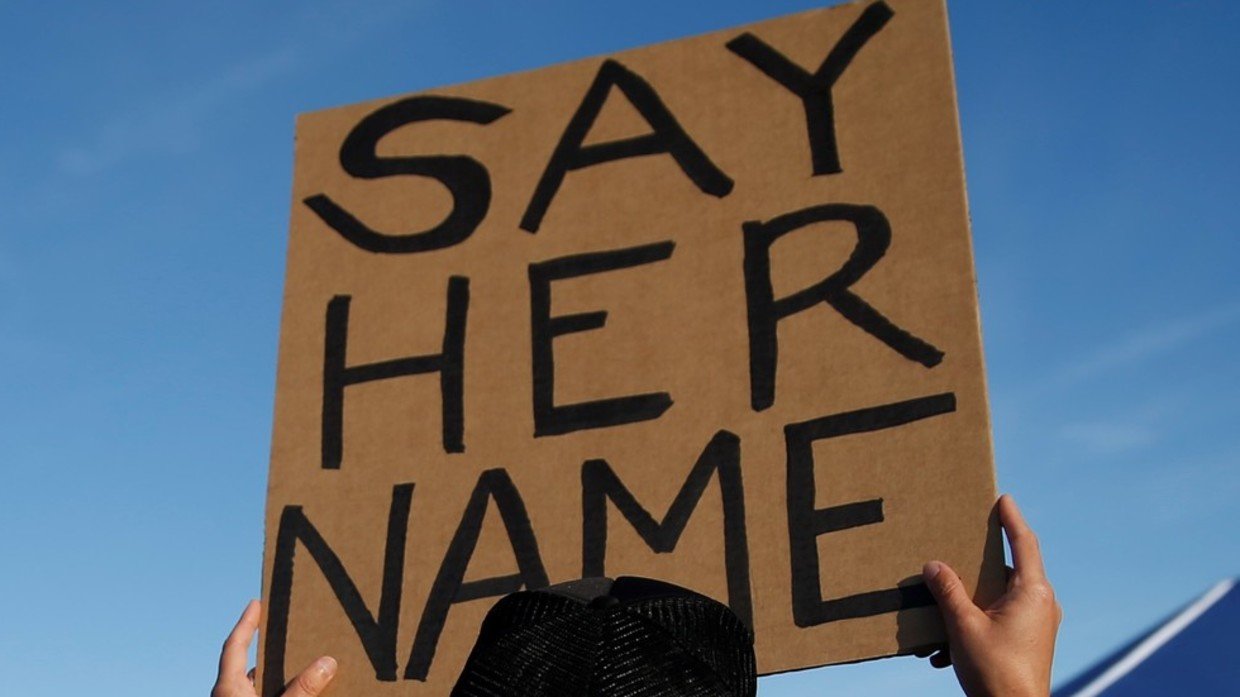Former Love Island star Yewande Biala is up in arms! Apparently one of the contestants struggled to pronounce her name and asked if she could refer to her as Y, making Yewande a victim of the cultural crime of microaggression.
These days, reality television celebrities earn extra kudos when they perform outrage. And Yewande Biala is certainly outraged. ‘Mispronouncing or changing people’s names is just another form of racism,’ she asserts. She declares ‘my name is important – and pronouncing it correctly is key to my identity.’
The practice of claiming offence and feeling traumatised by having your name mispronounced is integral to the project of expanding the sources of racial hurt. One educator has cobbled together a ‘Guide for Understanding a Microaggression for White Teachers’ to get them to understand that ‘mispronouncing your non-white students’ names is a racist act’.
Predictably, in the US there is a national campaign by the National Association for Bilingual Education that insists that teachers who mispronounce a student’s name are causing an offense to their pupil’s identity. Apparently, this can lead to a negative emotional state that can lead to poor academic outcomes[iv].
Professor Rita Kohli of the University of California, Riverside, has ‘researched’ the apparently devastating consequence of mispronouncing people’s names on ‘students of color’ And not surprisingly her research discovered what every offense-seeking academic suspected – it strips people of their dignity and humanity.
With so much energy invested in the crusade against mispronouncing names, and seen as how it has already graduated from social faux pas to ‘microaggression,’ how much longer do we have before it makes the leap to hate crime?
According to Yewande, "microaggression is a form of oppression that reinforces existing power differentials between groups, whether or not this was the conscious intention of the offender".
According to the performative outrage playbook, the microaggression is in a class of its own. It is so micro that it is almost invisible – so it leaves a lot to the imagination. The psychologist Derald Wing Sue, who invented the term, defines a microaggression as “the brief and commonplace daily verbal, behavioral, and environmental indignities, whether intentional or unintentional that communicate hostile, derogatory, or negative racial, gender, and sexual orientation, and religious slights and insults to the target person or group.”
Also on rt.com American university students are coddled, thin-skinned snowflakes, and social media is to blameWhat’s important about this definition is that these indignities need not be the outcome of intentional behavior. Indeed, Sue argues that ‘perpetrators of micro-aggressions are often unaware’ of the indignities they inflict on others.
The focus on the unconscious or unwitting dimension of micro-aggression is crucially important. People accused of this misdemeanor are not indicted for what they have done nor for what they said and not even for what they think, but for their unconscious thoughts!
According to Sue, microaggressions are often unconsciously delivered in the form of “subtle snubs or dismissive looks, gestures, and tones.” So how does one prove an act of micro-aggression? After all, if these are acts buried deep in the psyche and delivered unconsciously how can their existence be verified?
As far as Sue and his collaborators are concerned there is no need for a complex psycho-analysis of the sub-conscience of the accused perpetrator of micro-aggression. Why? Because, according to Sue, since “nearly all interracial encounters are prone to the manifestation of racial microaggression” there is little to prove. The same holds true for encounters involving women, gay, lesbian, bisexual and transgender individuals, and disability groups.
In all these cases the presumption of guilt precedes the words or gestures of the unconscious aggressor. This is a secular theory of original sin from which no white, heterosexual man can possibly escape as, according to Sue, even well-intentioned Whites suffer from ‘unconscious racial biases’.
Human communication has always been a complicated business. The reading of body language and the interpretation of words and gestures have always been subjected to miscommunication. In an enlightened environment it has been recognised that it is difficult, if not impossible, to hold people responsible for the unintended consequences of their actions and words. If people are held to account not for what they did or said but for their unconscious thoughts, then the idea of moral responsibility becomes emptied of meaning. What is truly tragic about the myth of micro-aggression is that it makes genuine dialogue impossible.
Also on rt.com University of Kentucky SEGREGATES resident assistants by race for ‘abhorrent’ mandatory white-shaming trainingWe should be able to mispronounce each other’s names. It is understandable for children to feel slighted by an act of miscommunication. But grown-ups should be able to live with it. Those of us with names that others find difficult to pronounce should be big enough not to feel offended and certainly not draw the conclusion that our identity is in question.
Oh, and by the way, it’s Füredi, not Furédi, in case you were wondering.
Think your friends would be interested? Share this story!
The statements, views and opinions expressed in this column are solely those of the author and do not necessarily represent those of RT.


